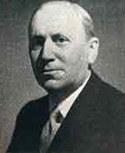 |
Department Electra House |
From the European capitals the British Missions telegraphed any news of importance and the B.B.C. monitored all significant broadcasts from enemy held

In June, 1940, control of Electra House returned to the Minister of Information, Duff Cooper and now Campbell Stuart began discussions on the importance of British propaganda being broadcast from overseas. In secret, ten days after the Fall of France he travelled with Anthony Gishford to North America, intending to explore these possibilities and by this mission secured for the B.B.C. consent from the Canadian government to build a shortwave station in Canada. Plans were also made to broadcast from America to Germany, either through Newfoundland or Bermuda but upon his return Campbell Stuart found that the B.B.C. showed little enthusiasm. Moreover the political scene had changed and on July 16th., 1940, Churchill invited Dr. Hugh Dalton, the Minister of Economic Warfare, to take charge of a new organisation responsible for sabotage and subversion. Thus the Special Operations Executive was confirmed at a War Cabinet meeting on July 22nd. and S.O.E. duly incorporated Department Electra House into S.O.1., as the branch now responsible for propaganda. In prudent anticipation, Campbell Stuart resigned on August 17th. and from thereon devoted his energies to the duty of being Chairman of the Imperial Communications Advisory Committee.
At Campbell Stuart’s departure Reginald Leeper – before the war the head of the Foreign Office News Department - then took charge of the ‘country operations’ of Electra House although Dalton began to increasingly regard him with suspicions as to loyalty!